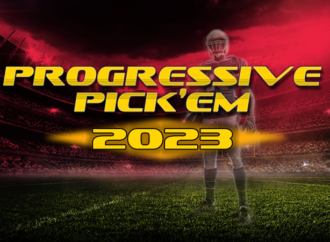The latest round of hearings initiated by Barney Frank regarding his continued effort to repeal the UIGEA and legalize and regulate internet gambling were certainly not at the top of any legislators ‘to do’ lists yesterday. The lightly attended and I mean lightly attended, hearing basically pitted Frank against gambling’s latest arch enemy, Representative Spencer
The latest round of hearings initiated by Barney Frank regarding his continued effort to repeal the UIGEA and legalize and regulate internet gambling were certainly not at the top of any legislators ‘to do’ lists yesterday. The lightly attended and I mean lightly attended, hearing basically pitted Frank against gambling’s latest arch enemy, Representative Spencer Bachus from Alabama. The hearing lasted about 90 minutes and towards the end Frank noted several times that they had to finish so that they could vote. I guess he looked around the empty seats and realized that there were not enough present. Frank ended the hearing by letting us all know that this debate will continue into next year. And probably the year after that and the year after that……
Frank started the proceeding and spun his usual stance on personal freedoms. “The notion that this Congress should tell millions of adult Americans that we know better than they, what they should do with their own money, on their own time, on their own computers seems to me to be a very grave error and I hope that this whole legislation is repealed.â€
Bachus, on the other hand, not only hammered his usual rhetoric about children becoming gambling addicts. He fabricated the statement, “in the next 5 years we will create a generation of 10s of millions who from their youth will be addicted to Internet gambling and therefore lifelong problem gamblersâ€. Bachus also stated emphatically that he would “do everything I can to make sure this never happens.†He also added that online gambling is “particularly predatory and an abusive intrusion into American homes.†Wow, I guess that anyone could simply turn off the computer to stop the intrusion.
Luckily, in Frank’s rebuttal, he stated that there was no basis for the millions of addicts that Bachus claimed and added that, “I don’t think this is simply about protecting young people . . . there are some people who do not want gambling.†He added that the notion that you end the legal ability for Americans do to anything because some people will abuse it is a ‘recipe for the destruction of individual freedom.â€
So, after the only two representatives who seem to really care about the issue were done (or present), the testimony started. In the interests of space and so as not to rehash the entire hearing, I will break the testimony down into three groups, those for or against the legislation and those who were simply testifying to provide information. If you would like to view the hearing in its entirety, click here.
FOR the repeal of the UIGEA AND legalization:
Mr. Samuel A. Vallandingham testifying on behalf of community bankers noted that the financial payment systems were not designed for trapping and prohibiting unlawful internet gambling transactions. Obviously, the banking community does not want this burden so it was no surprise that he and his group support H.R.2266, to repeal the UIGEA. But, apparently the small bankers of America also support H.R. 2267 because once clear legalization and regulation occur, then the banks won’t have to figure out what illegal gambling is.
Mr. Mike Brodsky, representing YouBet, the online race book based here in the U.S. came out in favor of both bills as well with a convincing argument. He referred to the current stat of Internet gambling as a ‘Wild West affair†that is “out-of-control’. But, he came out with one off the best statements of the morning. “Enacting H.R.2267 is the most effective way of achieving the stated goals of some of the bills harshest critics.†During the Q & A period after the testimony was completed he helped Mr. Frank make a point that the different branches of government see Internet gambling differently, specifically that the DOJ calls all Internet gambling illegal. Brodsky answered this question by stating that 88% of all pari-mutuel wagers placed in the U.S. are placed across state lines!
Ms. Parry Aftab runs WiredSafety, a volunteer non-profit internet protection organization. She was the most compelling speaker of the day and said that Internet gambling is a consumer protection problem. She stated that though she does not “advocate gambling anywhere . . . We need to do something because what we have right now is not enoughâ€. “The only way to protect consumers from online gambling risks is by legalizing it. If we don’t legalize it – we can’t regulate it.â€
Those who were non-committal and/or were just providing information:
Professor Malcolm K. Sparrow who ran a study, funded by the Poker Players Allliance and Harrahs, for the Wired Safety group, focused on managing risks. He noted three ‘unregulated’ jurisdictions – Antigua, which does actually regulate their operators, the Kahnawake Indians in Montreal and, of all places, Grenada, which currently has no Internet gambling operators. Though Sparrow does not show the greatest grasp on the industry, he did provide some solid insights. He stated that in the current U.S. scheme the America incurs all of the social costs while exercising no jurisdiction and offering consumers no protections. He said that he would expect that in a regulated environment most consumers would move from offshore operations to licensed ones.
Mr. Keith S. Whyte, the executive director of the National Council on Problem Gambling stated that internet gambling in the U.S., Canada AND the UK is the LOWEST form of problem gambling. He also said that his group did not see any decrease in help line calls after UIGEA was enacted.
Mr. Jim Dowling, a former special agent with the IRS who now works with casinos and financial institutions came the closest to putting everyone to sleep. The only worthwhile thing that he added was that any blacklist of offshore operators would be out-of-date as soon as it was published. He wanted to keep dulling us to death but Frank cut him off before anyone started snoring
The only full opponent of these two bills was The Honorable Robert Martin, Tribal Chairman of the Morongo Band of Mission Indians in California. He wondered why Congress would want to protect foreign illegal operators – legalize offshore gaming at the expense of local jobs. He felt that Internet gambling would put the Tribe at a competitive disadvantage to Internet operators. I guess he also thought that selling Manhattan for a bunch of beads was good business, as it would be obvious to the casual observer that an Internet presence will only enhance any land-based gambling operation. Martin was reading from a prepared statement and appeared like he was looking for his foamy red nose and big floppy shoes whenever he was asked a question by the legislators.
The final phase of these hearings is always a question and answer session with the panel of witness. This is always an entertaining segment, especially with Bachus asking the questions. And, he did not stop mystifying. He spent the bulk of his ammo trying to discredit the proponents of the bill with questions like this one to the executive director of the National Council on Problem Gambling. “Harrah’s is one of your main contributors, right.†A befuddled Whyte replied looking more like this :>O. He stated that Harrah’s is one of the councils sponsors and contribute $5000 annually.
However, a new player did emerge during this phases of the hearing. Peter T. King, the ranking member of the Committee on Homeland Security made a statement during the Q & A. His powerful words included, “All prohibitions are well intended – sometimes they work, sometimes they don’t. Usually they don’t. In this case I don’t believe it is – we are losing revenue and we’re not achieving the social purpose that was intended. I strongly support this legislation.â€
And so do we. This hearing was the first one out of all of them I have endured where I came away feeling positive. The scale is tipping and may be getting heavy in favor of legalization. But unfortunately, we will all have to wait until 2010 for the next round and the potential for any real change here in the U.S.
4 comments















4 Comments
Parry Aftab
December 5, 2009, 6:48 amThank you for your kind words. I should note that the “having to vote” Rep. Barney Frank was referring to was voting on other matters on the floor of the House. This was merely an informational hearing and no votes were intended.
Parry Aftab
REPLYExec Director
WiredSafety.org
Jim Quinn
December 5, 2009, 10:19 amHello Parry.
Thank you for caring about what goes on out on the Internet. Your testimony had us all glued to the computer screen. Nicely Done!
In addition, thank you for clearing up the vote. The hearing ended so quickly it was difficult to discern what was supposed to happen there at the end.
Jim Quinn
REPLYLarry
December 5, 2009, 2:25 pmAn overused cliche’ is “Timing is Everything”. However this very important government hearing was overlooked falling on the same day as President Obama’s additional troop deployment message, economic update and the confirmation or non-confirmation of US Treasury Secretary Ben Bernanke. No wonder the room was empty.
Overall, what more could a partial judge and jury observe than Barney Frank’s continued compelling testimony on behalf of this necessary common-sense cause.
After all, he certainly has many other crucial things to mark off on his “to-do” list.
What more could (if possible) the public vote upon than an exhaustive Harvard University study indicating government legalization and regulation is overall strongly in consumer’s protective favor? I’m not sure we have any evidence this one-sided on Healthcare!!
Why is the USA the sole nation on earth that still feels this archaic way? We plainly heard it..the banking community is against the UIGEA. Homeland Security supports new legislation.
Sadly it could be because SELF-INTEREST and morality not the public’s interest rules enacting a change. Exhaustive studies must be produced to convince the existing mammoth gaming companies with US interest (Harrah’s, Wynn, Boyd, etc.) they would all benefit to UNITE. Their political pull must support the majority at this hearing to continue marching forward. Safety, responsiblity, consumer protection + incremental profit is obviously possible.
While that hopefully will happen ASAP…please don’t give up the fight Barney.
REPLYaction figures
April 5, 2010, 3:51 am“Sadly it could be because SELF-INTEREST and morality not the public’s interest rules enacting a change. Exhaustive studies must be produced to convince the existing mammoth gaming companies with US interest (Harrah’s, Wynn, Boyd, etc.) they would all benefit to UNITE.”
My thoughts exactly, thanks and keep it up Barney.
REPLY